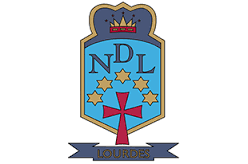 GIRFEC@Lourdes
GIRFEC@Lourdes
Getting it right for every child (GIRFEC) is the national approach aimed at improving outcomes for all children and young people in Scotland. GIRFEC is underpinned by the recognised need for shared principles and values and a common language among practitioners who provide services for children and families. It recognises the rights of children and young people, focuses on developing and supporting wellbeing and builds on the good practice evident in services across Scotland. Getting it right for every child is important for everyone who works with children, young people and families, as well as many who work with adults who look after children.
Where appropriate, they should feel confident about responding to emerging signs of concern and taking effective, early or preventative action to safeguard the wellbeing of children and young people The getting it right for every child approach is based on research evidence and the experiences of practitioners, families and children. It has been developed around a set of values and principles and 10 core components.
The National Practice Model provides a framework for good quality, holistic assessment of needs and streamlined planning processes to support single-agency, multiagency and inter-agency working across the whole of children’s services. These key aspects of the GIRFEC approach can be applied in any setting and circumstance where people are working with children and young people.
All leaders and practitioners within education services need to be familiar with the overall approach and understand their roles and responsibilities, within the GIRFEC framework, in improving outcomes for all children and young people. The wellbeing of children and young people is at the heart of Getting it right for every child. We want all our children and young people to be fully supported as they grow and develop.
There are eight areas of wellbeing in which they need to progress to do well now and in the future: safe, healthy, achieving, nurtured, active, respected, responsible and included. These eight areas – often referred to as the wellbeing indicators – are set in the context of the ‘four capacities’, which are at the heart of Curriculum for Excellence. The four capacities aim to enable every child and young person to be a successful learner, a confident individual, a responsible citizen and an effective contributor. The Wellbeing Wheel shows how they interconnect.
At Lourdes Secondary we take a collaborative team based approach to plan for our young people. Within the Pupil Support team we have a wealth of experience and expertise. By planning collaboratively that knowledge and understanding of young people is optimized to ensure that we are able to plan, implement and evaluate creative and effective strategies to remove barriers to learning. We work closely with our partners in Social Work, Educational Psychology, Business, the 3rd Sector and, most importantly Parents. We take into account the views of our young people and involve them throughout the process. Our aims are to love, teach and care for our young people. By doing so, we enable our pupils to flourish and become the best version of themselves possible
WeValue@Lourdes
Love
Opportunity
Understanding
Respect
Diversity
Equity
Support

